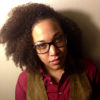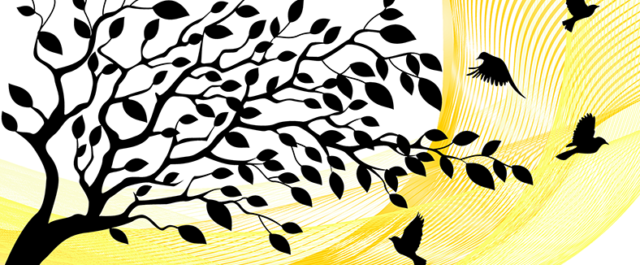Mel Sherrer
Leigh Statham, a writer who has served on South 85 Journal‘s staff, is currently touring with her new YA book, Daughter4254, which will officially be released by Owl Hollow Press on November 7. We caught up with her for a few minutes for a sneak preview of the book and some insight into her motivation for writing it.
What was your inspiration for Daughter4254?
My inspiration came from a lot of different sources. I’m a big fan of classic dystopian literature (especially The Giver and Fahrenheit 451) and Chinese history. The Cultural Revolution, in particular, blows my mind. This was a period when the government, or more specifically, Mao Zedong, decided that all art should “serve the people” which quickly translated into “serve the state.” Many great artists were ridiculed and great works of art and literature were gathered and destroyed. It’s a crushing story and one that China openly regrets now. As a creative person, I’ve often wondered what it would be like to have your life’s work be illegal. Fast forward to American culture today and the educational budget cuts that force public schools in the poorest areas to cut funding for the arts at all levels of childhood development, and we’ve got a much quieter, however equally nefarious situation on our hands. I think it’s important to express in any way we can how important the arts are not only to our children but to humans in general. I chose a futuristic novel.
How do you feel this book reflects socially prevalent opinions of art and artists?
I hope it reflects them closely. I tried to highlight the feeling I think every creative person gets in their gut, that desire to create and appreciate and be a part of something meaningful, even if you don’t know what that something is going to be. Although the “Leaders” in my book don’t allow anything that isn’t of use to the community (harkening back to the days of Mao) I don’t think that’s a far cry from the powers that be today, especially in the US. With more and more emphasis being placed on physical accomplishments and STEM, art, music, literature, and even quality cinema are suffering for lack of respect. I’m not against sports or science, of course. But I think a truly healthy society incorporates all aspects of learning. It doesn’t take much research to discover the benefits of an arts-rich education. The greatest scientists all had creative outlets as well as scientific pursuits. You have to be able to think creatively in order to problem solve, and that’s where all great STEM advancements come from. You can’t nurture those kinds of talents using only one side of a child’s brain.
Would you say your characters are symbolic or realized? What I mean by that is, do you formulate characters based on ideals and values you want them to represent or are they based on archetypes of human character?
When I sketch a character, I start with an archetype, then I add all the layers. For Daughter4254, I began with your basic misfit and then tried to add layers. I don’t ever think about a character representing any one ideal or value, per se. I try to make my characters as well-rounded as possible. They have ideals they aspire to, but a lot of times they are far from achieving those ideals. Sometimes they aren’t the people they think they are. Sometimes they just aren’t good at communicating what they want. In Daughter’s case, she doesn’t know what she wants, she doesn’t even know if it exists, she just knows she wants more and she feels like she needs to fight to find that something. Her story ultimately ends up being a sort of hero’s journey gone wrong.
How does this book differ from your previous book in terms of your writing process?
My previous books are historical fiction in a steampunk setting. I did a lot of research on French Canadian immigrant history and piracy for those books. It was a lot of fun to let my imagination run wild while framing the facts of those stories. I was writing specifically for a younger teen audience and mainly to entertain and inform. Not many people are aware of the true story of The Daughters of the King. Kids are always surprised to hear that the basic foundations of the novels are true. For Daughter4254, I was writing from the gut. Again, it’s a completely fantastic dystopian setting that I have complete control of, but it was more of a visceral experience. All of my books deal with death and loss and coming of age, in a way, but Daughter4254 is a much more serious study of what our world might become if we continue devaluing the arts at the rate we are now. As far as actual process goes, whereas the other books came together quickly. Daughter4254 has taken nearly a decade of writing, rewriting, and deciding on exactly how the story is best presented. I finally settled on an alternating flashback style as a nod to the fact that hindsight is 20/20. We won’t know what we’ve lost until it’s gone.
Daughter4254 delves into the intricacies of a mother-daughter relationship, can you talk about your inspiration for that theme; is there a personal narrative behind it?
Ahh… now we’ve come to the really hard question! Yes and no. I think every child feels the weight of their parents’ expectations most of their lives. My mother and I have a rocky relationship at best, but I still find myself wanting to please her. Daughter’s motivation for a lot of the choices she makes is to make her mother proud. There is something timeless about that. I know very few people who can honestly say they aren’t trying in some way to get their parents’ approval, even late in life, even when it doesn’t make sense, even when they are dead and buried.
Did you set out to explore this theme, or did it emerge as you were writing?
I try to let my themes emerge as I write. I concentrate primarily on character, plot, and setting. After all, my goal is to tell a good story. One of the last things I do before I send a book to my agent is to look for any themes that are emerging. If there is something there that is strong and begging to be pulled out, then I take it by the hand, spread it through the book, and dress it up a bit. I don’t think I could ever force a theme. It would probably come out feeling insincere and hollow. Themes have to be born naturally or for me, they ruin the story.
What do you read when you are working on a piece of fiction? Do you take the read everything or read nothing approach when it comes to influence and inspiration?
I’ve tried both methods, and for me, what works best is read everything, especially in the genre that I’m writing. I used to be afraid that I would accidentally rewrite what I was reading, or that my work wouldn’t be as original or might somehow be contaminated by someone else’s work. But I find exactly the opposite to be true. First of all, you can’t claim to be an artist if you never let yourself be inspired by other artists. Second, you need to know what’s being done in your field. What’s selling? What’s amazing? What’s not so great? Working under a rock is no way to work. Third, even if your plot matches that of a bestseller that you stumble across, chapter for chapter (true story, happened to me once) no one else is going to write it the way you write it. Your voice is uniquely your own, and it’s better to know that book is out there and to be familiar with it than to have your agent school you on it! Trust me on this one. Some of the greatest writers of our time base their novels on classic works or works they admire. The more you dig into your own creative dirt, the more of your own flavor will shine, and in time you will have a completely original piece.
What most excites you about Daughter4254? What should readers be anticipating?
In my wildest dreams, I’m hoping to start a creative revolution, complete with hashtags and bumper stickers and spontaneous works of sidewalk chalk art and impromptu public poetry readings. In reality, I’m extremely pleased with the work Owl Hollow Press did to make this book beautiful on the inside and out. There are all kinds of beautiful touches through the book, the chapter headings, the inside flap. I’m in love with the actual physical copy. I am also excited to share with readers my view of how bad it can get. That probably sounds crazy, but that’s what literature is for, right? To give you a glimpse of what’s possible, be it good or bad. Sometimes you have to look the bad in the face in order to appreciate the good. Make sure to plan a cultural outing as soon as you finish reading. Support your local artists, musicians, and writers. Go see indie films and make a little art yourself. God knows we need it now more than ever.
About the Author
 Leigh Statham was raised in the wilds of rural Idaho but found her heart in New York City. She worked at many interesting jobs before settling in as a mother and writer. She now resides in North Carolina with her husband, four children, eight chickens, a fluffy dog, and two suspected serial killer cats. She is pursuing an MFA in Young Adult literature with Converse College and has served South 85 Journal as a Fiction Editor under the name Gwen Holt. She is also the winner of the Southeast Review 2016 Narrative nonfiction prize for her short story, “The Ditch Bank and theFence Line.”
Leigh Statham was raised in the wilds of rural Idaho but found her heart in New York City. She worked at many interesting jobs before settling in as a mother and writer. She now resides in North Carolina with her husband, four children, eight chickens, a fluffy dog, and two suspected serial killer cats. She is pursuing an MFA in Young Adult literature with Converse College and has served South 85 Journal as a Fiction Editor under the name Gwen Holt. She is also the winner of the Southeast Review 2016 Narrative nonfiction prize for her short story, “The Ditch Bank and theFence Line.”
About the Interviewer
 Mel Sherrer is a performance poet and teacher living in San Marcos, Texas. She is the Managing Poetry Editor for South 85 Journal.
Mel Sherrer is a performance poet and teacher living in San Marcos, Texas. She is the Managing Poetry Editor for South 85 Journal.
Featured Image Photo: A crop of the cover of Daughter4254
